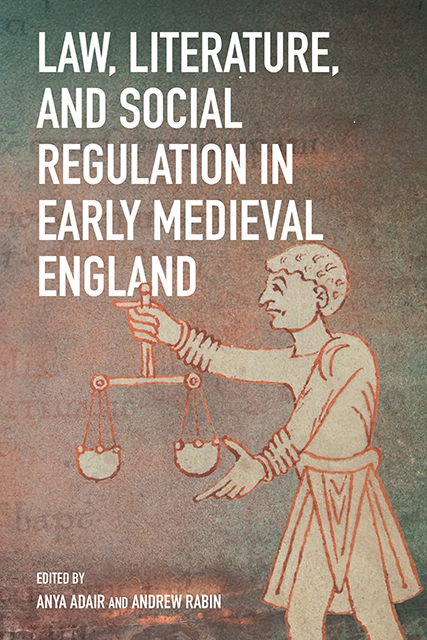8 - The Passive Ealdorman? Juxtaposing the Later Old English Law Codes and the “Dispute Narratives”
Published online by Cambridge University Press: 10 June 2023
Summary
Pre-Conquest ealdormen, and their eleventh-century counterpart earls, can cut dramatic figures in the surviving Old English and Latin corpora. The Anglo-Saxon Chronicle often provides terse descriptions of military leaders and royal councilors engaging in acts of heroics, cowardice, or betrayal. Surviving saints’ vitae and house chronicles frequently include these secular officials as side characters who either help or hinder the main saint or community depending on specific ealdormen's friendship to the protagonist. Close examination of these ecclesiastically centered works reveals that politics often had a more significant influence on how these secular men interacted with clerics or monastic houses than clerical authors openly acknowledge. Yet ealdormen often remain mysterious figures and the nature of their official duties, particularly in non-military situations, is often left vague or unsaid in the extant sources. To discover the possible duties of the ealdorman within the legal culture of the period, it is necessary to turn to the law codes from later pre-Conquest England (here defined as 871–1066) as well as the surviving records of litigation, some of which only survive in post-Conquest copies. These sources provide different and sometimes conflicting pictures, but taken together they offer a glimpse of the potential duties and legal responsibilities assigned to ealdormen. In the surviving laws, these secular leaders seem to be allocated a more passive role when compared with other appointed positions, specifically bishops and reeves. The litigation records, however, particularly the “dispute charters,” portray ealdormen actively as witnesses, judges, and overseers of cases. These latter sources, while undoubtedly legal texts, also contain narrative literary elements, which are particularly apparent as they attempt to establish one official story to the exclusion of other potential contending accounts. In this more expansive narrative space, details emerge to suggest that ealdormen in the tenth and eleventh centuries took on a number of official roles and participated actively in a range of legal functions.
In terms of composition, these records of litigation do not always fall into standard charter forms. Some of the cases can only be found in post-Conquest monastic chronicles, or cartulary-chronicles as they are sometimes called, which already places them closer to narrative sources and less formulaic records. Others take the form of letters or writs of personal statements providing one person's witness support of a claimant or version of the estate's history.
- Type
- Chapter
- Information
- Law, Literature, and Social Regulation in Early Medieval England , pp. 176 - 197Publisher: Boydell & BrewerPrint publication year: 2023



